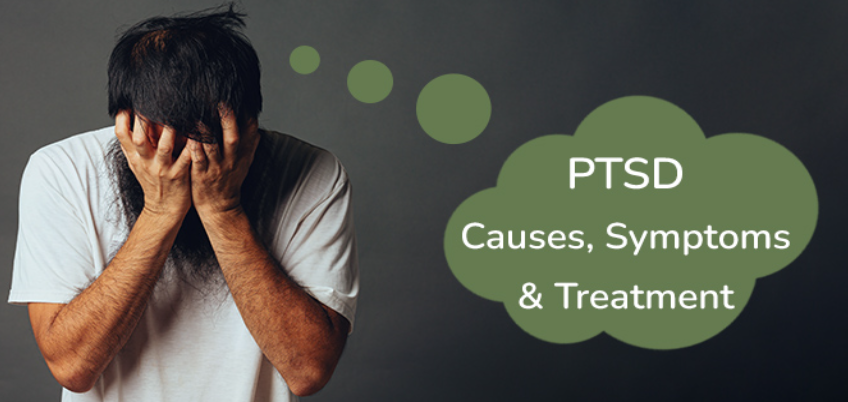PTSD: Causes, Symptoms, Treatment
PTSD (Post-Traumatic Stress Disorder) is a mental health condition that can develop after experiencing or witnessing a traumatic event. It is characterized by a range of symptoms that can significantly impact a person’s daily life. In this article, we will explore the causes of PTSD, common symptoms, and available treatment options.
Causes of PTSD:
PTSD can result from various traumatic events, including but not limited to:
- Combat exposure: Military personnel who have experienced combat situations may develop PTSD.
- Physical or sexual assault: Survivors of assault, whether it occurred during adulthood or childhood, are at risk for PTSD.
- Natural disasters: Individuals who have experienced earthquakes, hurricanes, floods, or other catastrophic events may develop PTSD.
- Accidents: Severe accidents, such as car crashes or industrial accidents, can trigger PTSD symptoms.
- Childhood trauma: Persistent traumatic experiences during childhood, such as abuse, neglect, or witnessing violence, can lead to PTSD later in life. To get help, visit a Best Psychiatrist in Lahore.
Symptoms of PTSD:
PTSD symptoms generally fall into four categories:
- Intrusive memories: Recurrent, distressing memories of the traumatic event, flashbacks, or nightmares.
- Avoidance: Avoiding places, people, or activities that remind the individual of the trauma. They may also try to avoid thinking or talking about the event.
- Negative changes in thoughts and mood: Persistent negative thoughts or beliefs about oneself, others, or the world. Feelings of detachment, emotional numbness, guilt, shame, or a diminished interest in previously enjoyed activities.
- Hyperarousal and reactivity: Heightened alertness, being easily startled, irritability, aggression, difficulty sleeping, and trouble concentrating.
Treatment of PTSD:
Various treatment approaches have proven effective in managing PTSD symptoms. These can be tailored to meet individual needs. Some common treatments include:
- Psychotherapy: Trauma-focused psychotherapies, such as Cognitive Processing Therapy (CPT) and Prolonged Exposure (PE) therapy, help individuals process and make sense of the traumatic event. Eye Movement Desensitization and Reprocessing (EMDR) therapy is also effective in addressing trauma-related symptoms.
- Medication: Selective Serotonin Reuptake Inhibitors (SSRIs), such as sertraline or paroxetine, are often prescribed to alleviate symptoms of PTSD, including depression, anxiety, and intrusive thoughts. Other medications may be used based on individual needs.
- Cognitive-Behavioral Therapies (CBT): CBT techniques, such as cognitive restructuring and exposure therapy, can help individuals challenge negative thoughts, confront avoided situations, and develop effective coping strategies.
- Group therapy and support groups: Participating in group therapy or support groups can provide a sense of connection, understanding, and validation. Sharing experiences with others who have gone through similar trauma can be particularly helpful.
- Self-care practices: Engaging in self-care activities, such as regular exercise, relaxation techniques (e.g., deep breathing, meditation), maintaining a balanced diet, and getting adequate sleep, can support overall well-being and symptom management.
- Complementary and alternative therapies: Some individuals find relief through complementary approaches like yoga, acupuncture, or mindfulness-based practices. While these approaches may not be standalone treatments, they can complement traditional therapies.
It’s essential to reach out to a psychiatrist like Dr. Nazish Imran for an accurate diagnosis and appropriate treatment. They can assess the severity of symptoms, provide support, and guide individuals towards the most suitable treatment options.
Recovery from PTSD is a gradual process, and the timeline varies for each person. With the right support, treatment, and coping strategies, individuals can experience a reduction in symptoms and improvement in overall functioning. Early intervention and a strong support network are key to promoting healing and resilience.
